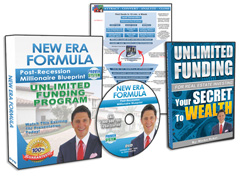
 An investment property that is part of a Homeowners Association is a great opportunity to own a townhome, condo, or single-family home in a well-maintained neighborhood. Before you get serious about the property, it’s important to understand how the HOA operates and what it covers fully.
An investment property that is part of a Homeowners Association is a great opportunity to own a townhome, condo, or single-family home in a well-maintained neighborhood. Before you get serious about the property, it’s important to understand how the HOA operates and what it covers fully.
What is the HOA?
Simply, the HOA is a Homeowners Association where each property owner contributes funds, either monthly or yearly, to the overall community. The HOA also has meetings, monthly or quarterly, to discuss the community and what issues need to be resolved. HOA programs are common in development style neighborhoods, like a condo or townhouse community, but are also prevalent in single-family home communities. The HOA handles maintaining the neighborhood which can mean outdoor landscaping, exterior home maintenance, and amenity upkeep. In addition to the physical upkeep, the HOA also sets neighborhood standards to maintain the quality of life and community presence.
Evaluate the HOA agreement
If you’re considering purchasing an investment property in a HOA community, your first step has to be fully evaluating the HOA agreement. Understanding how the HOA operates will help you decide if the property is worth your commitment and investment. Some communities offer their HOA breakdowns on their website, while others will require a bit more work or a realtor to get the details. If you are serious about the property, take the time to obtain a copy and consider the restrictions before moving forward.
Consider the following in the HOA agreement:
- The fees and fee schedule: some HOAs are $100 a year while others are $400 a month.
- What the fees cover: some include utilities like water or trash removal.
- The specifics: how the funds are allocated and which amenities add to the community.
- CC&Rs: these are regulations that function to maintain the community standard.
- Fee increases: if projects require more funding, they will conduct a special assessment.
CC&Rs and Fee Increases
Two other details to look out for in any HOA agreement are the CC&Rs and the fee increases. CC&Rs are covenants, conditions, and restrictions, basically the rules the HOA put in place to maintain their community standards. Each member that pays the HOA fees must follow these rules and rules are enforced through notices and fines if a member is in violation. CC&Rs include housing and yard regulations which can impact home specifics like door color, exterior landscaping, home maintenance, and even pets.
Fee increases are when the HOA raises the fee rate to accommodate the community. Increases over time are expected as the community or development grows. As an interested buyer, you can request the fee reports from the past 5 or even 10 years. This will help you understand how and why the rates change as well as where the funds are allocated. It’s also worth asking about special increases as you’ll need to consider these costs when deciding on the investment property.
Consider the Future
As much as the investment property may be a great opportunity you should consider the future with this property. With the HOA in place, you have to decide if the rules, regulations, and fees suit your needs and will work in your favor. It’s important to ask yourself these questions to see how the HOA would play into your investment experience.
- Do you want to follow the HOA rules?
- How do you feel about getting mail about HOA updates, violations, and citations?
- Do you want the HOA to tell you how you can change your property?
As a long-term investment, you also should consider if you may want to make changes, like adding a pool or shed, to the property which may be in violation of the HOA agreement. The community standard may be something that aligns with your wants now, but down the line, things may change and those changes could negatively affect your experience.
The HOA and the associated fees play an important role in the quality and community standard which can positively impact your investment property. The quality of the neighborhood could be a large selling point, but the monthly or yearly fees and strict rules may also limit your ability to make changes and maintain the property as you’d like. By taking the extra steps to inquire and understand the HOA dynamic you are saving yourself time in the long run, either by solidifying your choice or steering you toward a different opportunity.
Request FREE Funding Kit and Discover How To Legally Bypass Banks And Gain Direct Access To "No-Credit-Required" Funding You Can Use To Achieve Your Financial Freedom... Start Now!












